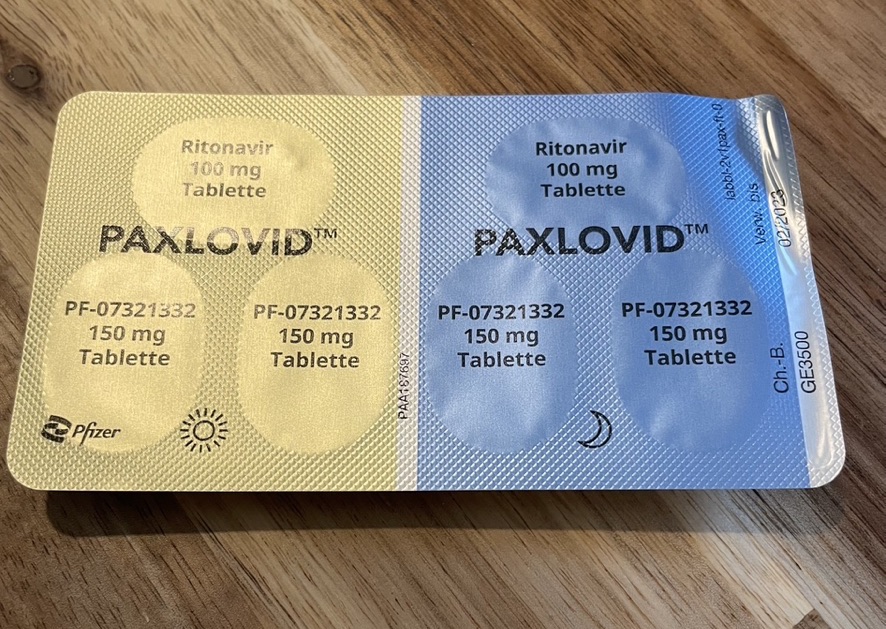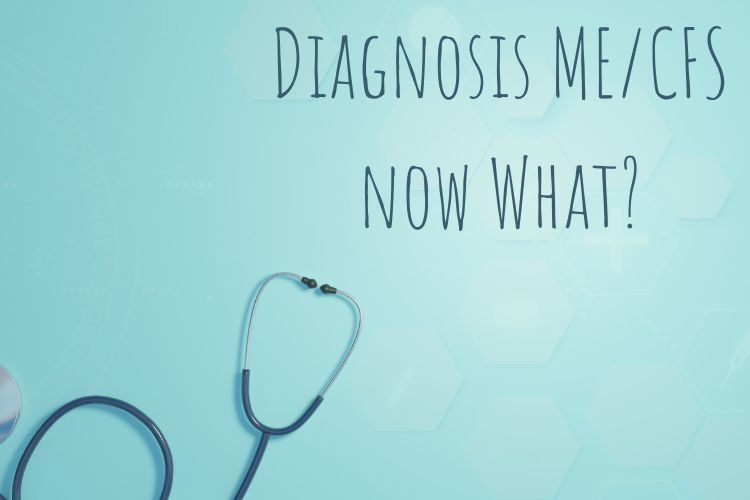Have you recently been diagnosed with ME/CFS and don’t know what to do next? I wrote this blog post specifically for you! Because as is often the case, doctors leave you alone with the diagnosis or give advice like:
- Rest more (which would be okay).
- Sleep more (also a good idea).
- Do more exercise, be active (generally not a good idea!).
That’s why I want to give you a little help with this blog post, with lots of tips, book recommendations, and useful links. But first, let me briefly introduce myself, so you know who is writing to you here.
Who am I?
I am Julia, almost 50 years old, married, and the mother of a teenager, living in the wonderful Rhineland in Germany. I have multiple jobs. I work part-time managing social media for an online store. On the side, I publish books. I also have training as a food coach and psychological counselor. Unfortunately, due to my health, I cannot work in those two professions.
I was diagnosed with ME/CFS in the fall of 2022. You can read about my journey in this blog post. ME/CFS probably started about 15 years ago because since then I have experienced recurring exhaustion leading to burnout. From today’s perspective, it wasn’t actually a proper burnout but rather a worsening of ME/CFS. During that time, I received other diagnoses like celiac disease and endometriosis. I have had asthma, Hashimoto’s, and allergies for much longer.
How am I doing today – as of June 2023?
Fortunately, I am much better, partly because I have achieved a lot through pacing, which I will explain below. Also, in February 2023, I received the medication Paxlovid due to a COVID-19 infection, which significantly improved my ME/CFS as a side effect. I am currently writing a blog post about it. Just to give you a preview: there are studies on Paxlovid, and there are reports that it can help, but it doesn’t work for everyone.

The ME/CFS Diagnosis
You probably had to undergo many tests and examinations before your doctor diagnosed you with ME/CFS. But at least now you have the diagnosis and can move forward from here.
First and foremost: don’t panic and take a deep breath. Yes, there are still no medications or therapies, and yes, you probably feel abandoned by the medical field.
But: You can do a lot for yourself and your health. The most important thing is to prioritize your health now. And you are not alone. More and more people are being diagnosed with this condition, especially because of the long-term effects of COVID-19. Patient organizations and doctors like Prof. Dr. Carmen Scheibenbogen from the Charite in Berlin are advocating for those who are affected.
Don’t give up hope!
I was fortunate to have read the book “Finding Freedom” by Raelan Agle first. She was severely affected and fought her way back to life. That made me realize that ME/CFS doesn’t mean it’s all downhill from here and that there is no hope. You can find her book here on Amazon (Affiliate Link):
https://amzn.to/3rfGFkw
Her YouTube channel is also a source of inspiration for me!
https://www.youtube.com/@RaelanAgle
It is essential not to just lie down in bed and hope that things will get better someday. Resting is certainly important, but you must try to maintain at least a minimal level of activity that you can build upon.
Don’t let yourself be dismissed into the realm of psychology
Don’t let doctors push you towards psychology if you have ME/CFS. According to current knowledge, ME/CFS is a multisystemic and primarily neurological condition. Of course, such a diagnosis can be overwhelming, and depending on how bad you feel, depressive states may accompany it. However, it is not a psychological illness. Nowadays, when I visit new doctors, I bring along the ICD-10 book. It contains international codes for various diseases, and for example, ME/CFS is assigned the code G93.32, which falls under neurological diseases. In the future ICD-11, it will continue to be listed under neurological diseases with the code 8E49. If a doctor gives me a hard time, I let them look it up in that thick book!
Treatment options and therapies
Unfortunately, there are still no clear therapies and treatment options, even though ME/CFS has been listed in the ICD-10 code since 1969. It is important to explore what personally might help you, such as dietary supplements, stress management, calming techniques like meditation, etc. Unfortunately, I cannot make any recommendations because it is highly individual.
There are now several online programs available. I really liked this program the Dutchman Daniel van Loosbroek, which operates on a donation basis:
https://www.danielvanloosbroek.com/chronic-fatigue-alignment-recovery-program/
His YouTube channel is also highly interesting: https://www.youtube.com/channel/UCmtq1a8DHXHBOyTg-3pIf7w
There are still some other programs, but they can be extremely expensive and I haven’t tried them.
Two points are absolutely important in the treatment of ME/CFS: Do not let a doctor or rehabilitation center push you into activities. This can do more harm than good. Because the second point is, in my opinion, the most important approach to ME/CFS: pacing.
Pacing is key in ME/CFS
I still need to write a blog post about this – the reason I haven’t done it yet is related to pacing, which I still practice.
In summary, pacing means carefully managing and conserving one’s own energy to avoid overexertion. I have a lot of ideas and people thought I had cloned myself because I do so much. By the way, many people with ME/CFS experience this because we were always active, whether it was sports, traveling, or engaging in multiple projects.
Now I have to carefully consider how much energy I have, what I can say yes to, and what I reject from the start. It’s damn hard, no question about it. But that’s the only way to achieve a balance between activity and rest.
I quickly developed the habit of strictly observing a lunch break from 12 to 1 p.m., lounging on the couch, and binge-watching Netflix. Some days, I had to force myself to do it! But it helped me, and I still maintain it.
I also make sure to only have one appointment per day and not 2-4 like before. Over time, I have learned my limits and can extend them on a good day and slow down on a bad day. But I learned this over months and often wasted too much energy.
Observing Symptoms
Another aspect for me was observing symptoms. I started doing this during the diagnostic phase and continued for several months. Today, for example, I know that pain in my fingers is not gout but simply a warning sign that things are getting too much. When I feel very bad, I should rest and take care of myself as it could be a warning from my body. Overexertion in the past has led to me vomiting.
For new pains, I first check if it’s related to ME/CFS or if it’s “real.” It’s tedious, but by now I can recognize quite well when it’s one or the other, and then I can have a reassuring internal dialogue like, “Thank you for the warning, everything is fine, I know there’s nothing there, so the pain can please stop now.” And it works!
Support Groups
I have organized self-help groups on celiac disease and parents of autistic children. I believe they offer valuable support when well-structured. In such groups, you find people who are going through similar experiences and can exchange on the same level.
Online, there are several self-help groups that I would recommend:
I really like Raelan Agle Facebook group, as she tries to keep it uplifting and optimistic:
https://www.facebook.com/groups/healingmecfs/
The CFS Recovery group by Miguel Bautista has valuable information, but promotes a program for sale.
https://www.facebook.com/groups/586782782687101/
The Facebook group CFS Health Information Hub offers free worthwhile information and videos, despite trying to sell an expensive program.
https://www.facebook.com/groups/cfshealthrecoveryhub/
What’s next?
Now that you have made it through all this information and read it, applause to you. What happens next is up to you. Educate yourself, but don’t let it unsettle or discourage you. If it becomes too much, take a break. You will find your way, but it’s a marathon for snails.
I wish you all the best, and feel free to follow me on Instagram!

